Interview by Jana Hoops. Special to the Clarion-Ledger (February 3). Click here to read this interview on the Clarion-Ledger’s website
Meridian native Snowden Wright’s second novel, American Pop, is a refreshing saga (and it really is a saga) of a Mississippi family’s rise to fame and wealth as their soft drink empire builds and fizzles.
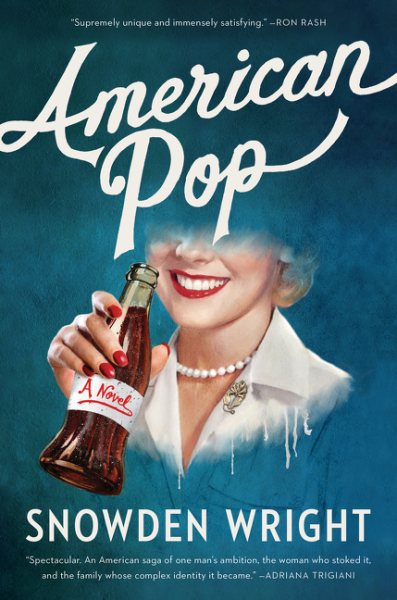 Based in the Panola County city of Batesville, the drink is aptly named Panola Cola (PanCola for short). The book follows not only the often-outrageous behavior of many of the owner’s family members, but the relentless pursuit of “cola hunters” who will do anything to find out the drink’s famous “secret ingredient.”
Based in the Panola County city of Batesville, the drink is aptly named Panola Cola (PanCola for short). The book follows not only the often-outrageous behavior of many of the owner’s family members, but the relentless pursuit of “cola hunters” who will do anything to find out the drink’s famous “secret ingredient.”
American Pop has been chosen as an Okra Pick by the Southern Independent Booksellers Alliance. Wright’s debut novel, Play Pretty Blues, received the 2012 Summer Literary Seminars’ Graywolf Prize. His work has also appeared in The Atlantic, Salon, Esquire, the New York Daily News, and other publications.
A graduate of Dartmouth College and Columbia University, Wright now lives in Atlanta.
Tell me about your life as a child in Mississippi.

Snowden Wright
Born and raised in Meridian, I went to Lamar School, where I was an embarrassingly good student, a spectacularly bad athlete, and an obnoxiously voracious reader.
Meridian’s lack of a bookstore for much of my childhood made that last point a bit of a problem. Fortunately, I would often spend time on my family’s farm in Yazoo County, and on weekends my father and I would come to Jackson. He would give me a $20 bill to buy a book upstairs at Lemuria while he enjoyed a couple Scotches at the bar. Back then there was a bar on the first floor of the building.
I would spend hours picking out just the right book. It was basically my indoctrination to the written word. So I often like to say I have two things to thank for my writing career: Lemuria Books and Johnnie Walker Black.
American Pop is a sprawling historical novel about one family’s rise to wealth and success in the soft drink business across much of the 20th century. What inspired you to write a nearly 400-page novel based on a soft drink business?
The inspiration was as easy as opening the fridge. I’m sure most readers will find in their fridge at least a can or two of Coke, Diet Coke, Sprite, or Dr. Pepper. To me, soda is emblematic of America, not only because it came into mass popularity here, but also because it’s an ingenious feat of capitalism. Take some water, carbonate it, and stir in some syrup, then, presto, you’ve got a multi-billion-dollar industry.
Once I’d settled on the idea of a soft-drink company, though, I faced a challenge in creating the family that owned it. To craft a narrative with complete omniscience, the kind that provides flash-forwards as well as flashbacks, I needed to know all the family members from the very first line, their personalities as well as their life stories. It was going to take forever!
Then I remembered my multiplication tables.
In second grade, when we were taught the multiplication tables, I gave each number between zero and 12 a place within a large family–10 was the father, 5 the mother, etc.–and when they multiplied with each other, a little story played out in my head, reminding me of their product. I taught myself math through narrative. So, to create the Forster family, I just transposed those numbers into the novel.
Besides its humorous moments, American Pop takes readers on a thought-provoking, emotional ride through the lives of Panola Cola’s founding family members from the late 1800s to the 1970s. What are we to make of the fact that this family lost its fortune, despite the country’s lasting love affair with cola?
The first epigraph in the novel is from Nathanial Hawthorne: “Families are always rising and falling in America. But, I believe, we ought to examine more closely the how and why of it, which in the end revolves around life and how you live it.”
I wanted the novel to embody that quote–as well as its follow-up, “Southerners need carbonation,” by Nancy Lemann–through the use of a fluid timeline. I tried to create a collage of time periods that, from a distance, represents the entire country and, up close, examines the individual lives of the Forsters.
American Pop is a how-and-why-it-happened novel.
Thanks to the Forster family’s Mississippi heritage, the book has a decidedly Southern slant. How does that affect the story?
Do my characters know it’s Sunday because they have a craving for Chick-fil-A? Do they use dilly beans as stirrers in their Bloody Marys? Are there a pair of duck boots wedged upside down between their pickup’s tool box and back window? Yes, on all accounts!
I have a fondness for getting anthropological about the South. From our language to our social customs to our innate “sense of story,” as I like to think of it, the South in general and Mississippi in particular influence everything I write. That’s especially true with American Pop. Its characters are Southerners who, by dint of their wealth, social prominence, and political aspirations, are put on the national stage. That in turn creates conflict, internal and external, due to this region’s tragic history and the weight of its subsequent, persistent guilt.
I’ve experienced those concerns firsthand. Even though I lived up North for most of my adult life, the fork of the South has forever left its tine marks in the peanut-butter cookie that is my subconscious.
Why did you return to Mississippi to write this book?
After college, I lived in New York for nearly a decade, waking early in the morning to write before heading in to a day job. I began American Pop shortly after the publication of my first novel, Play Pretty Blues, and because of the second novel’s greater scope and length, I soon realized it would take me at least five years to finish. Then, sadly, my grandfather, to whom I’ve dedicated this book, passed away, leaving me a small inheritance. I decided to honor his memory and his generosity by using that inheritance to quit my day job, return to Mississippi, and work full-time on American Pop.
My primary residence during that period was in Oxford, but I also spent a lot of time writing in an old shotgun cottage on my family’s farm, where I’d spent much of my childhood. Being in a place rife with memories and family lore…proved the perfect inspiration for a novel that is, essentially, the story of a family.
Do you have another book in the works?
I do, in fact. Although I’d rather keep its plot a secret for the time being, I can tell you a bit about where I will be writing it. On my family’s farm in Yazoo County lies a pecan grove, where, until it burned down 50 years ago, the house my grandmother was raised in used to sit. I recently completed construction of a house in the same spot. I’ve been calling it “The Sweetest Thing,” after the slogan for PanCola in American Pop.
So, when my book tour is over, I’ll live part-time in The Sweetest Thing, writing my next novel and, ideally, raising a yellow Labrador puppy that I plan to name Falkor.
Snowden Wright will be Lemuria on Tuesday, February 5, at 5:00 to sign and read from American Pop. Lemuria has chosen American Pop as one of its February 2019 selections for its First Editions Club for Fiction.
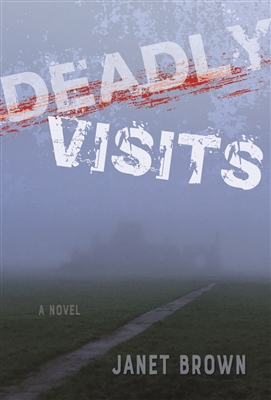 For a seemingly demure and grandmotherly-type lady, Janet Brown knows how to scare the crud out of you. Her fourth thriller, Deadly Visits, conjures ghostly visions, creepy critters and elemental disruptions amid a high-tech whodunit.
For a seemingly demure and grandmotherly-type lady, Janet Brown knows how to scare the crud out of you. Her fourth thriller, Deadly Visits, conjures ghostly visions, creepy critters and elemental disruptions amid a high-tech whodunit.

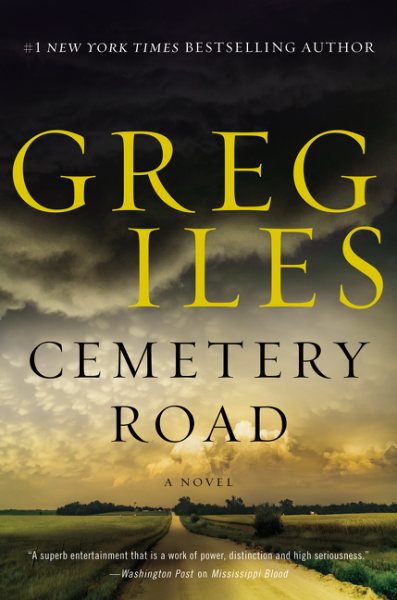 His newest,
His newest, 
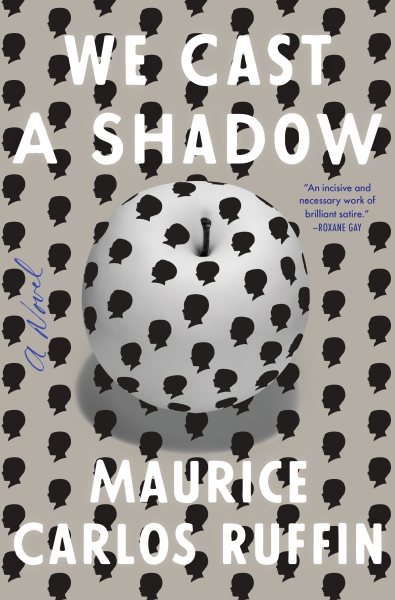 New Orleans native Maurice Carlos Ruffin’s debut novel is a darkly thought-provoking satire on race in America that is based on one African-American man’s plan to spare his teenage son from racial disparities he and his own father have endured–thanks to a new medical procedure that can change his biracial son’s skin white.
New Orleans native Maurice Carlos Ruffin’s debut novel is a darkly thought-provoking satire on race in America that is based on one African-American man’s plan to spare his teenage son from racial disparities he and his own father have endured–thanks to a new medical procedure that can change his biracial son’s skin white.
 I was very excited to see a family tree in the first few pages. From Gabriel García Márquez’s One Hundred Years of Solitude to Yaa Gyasi’s
I was very excited to see a family tree in the first few pages. From Gabriel García Márquez’s One Hundred Years of Solitude to Yaa Gyasi’s 
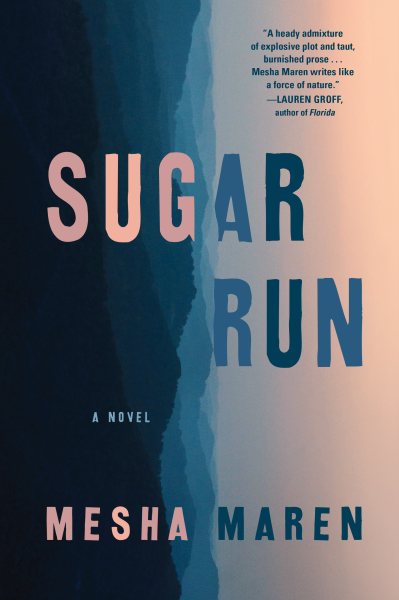 This novel certainly gave me what I was looking for. With a fantastically driven plot, compelling prose, and beautiful descriptions of that unique, rural, mountainous region of West Virginia, this novel was really hard to put down. I found myself carving time to read this novel into every moment of my day, something I haven’t done with a novel (one not for school) in a long time.
This novel certainly gave me what I was looking for. With a fantastically driven plot, compelling prose, and beautiful descriptions of that unique, rural, mountainous region of West Virginia, this novel was really hard to put down. I found myself carving time to read this novel into every moment of my day, something I haven’t done with a novel (one not for school) in a long time.
 Well, the season is upon us: hundreds of hungry children dressing up like princesses and superheroes, anticipating candy by the truckload. But my treat came early in the form of John M. Floyd’s seventh exciting collection of mystery short stories.
Well, the season is upon us: hundreds of hungry children dressing up like princesses and superheroes, anticipating candy by the truckload. But my treat came early in the form of John M. Floyd’s seventh exciting collection of mystery short stories.